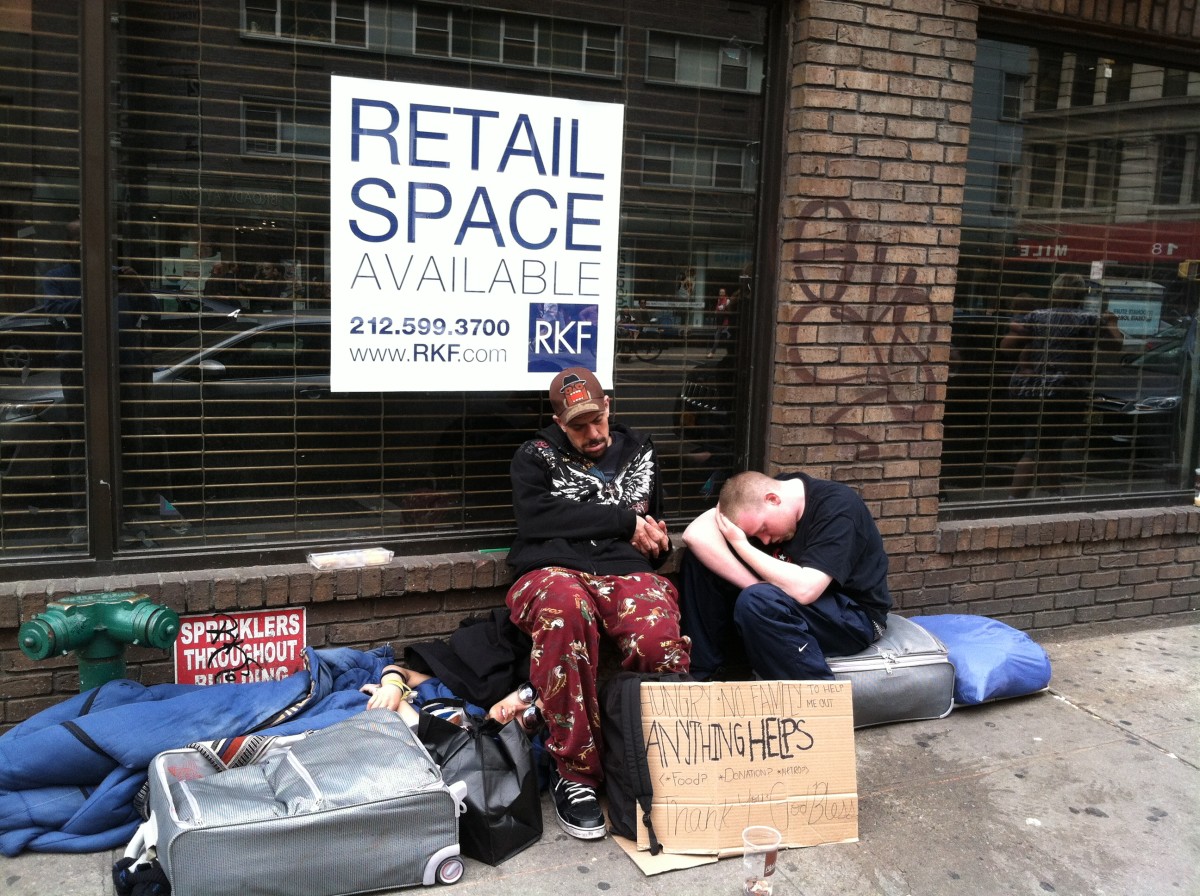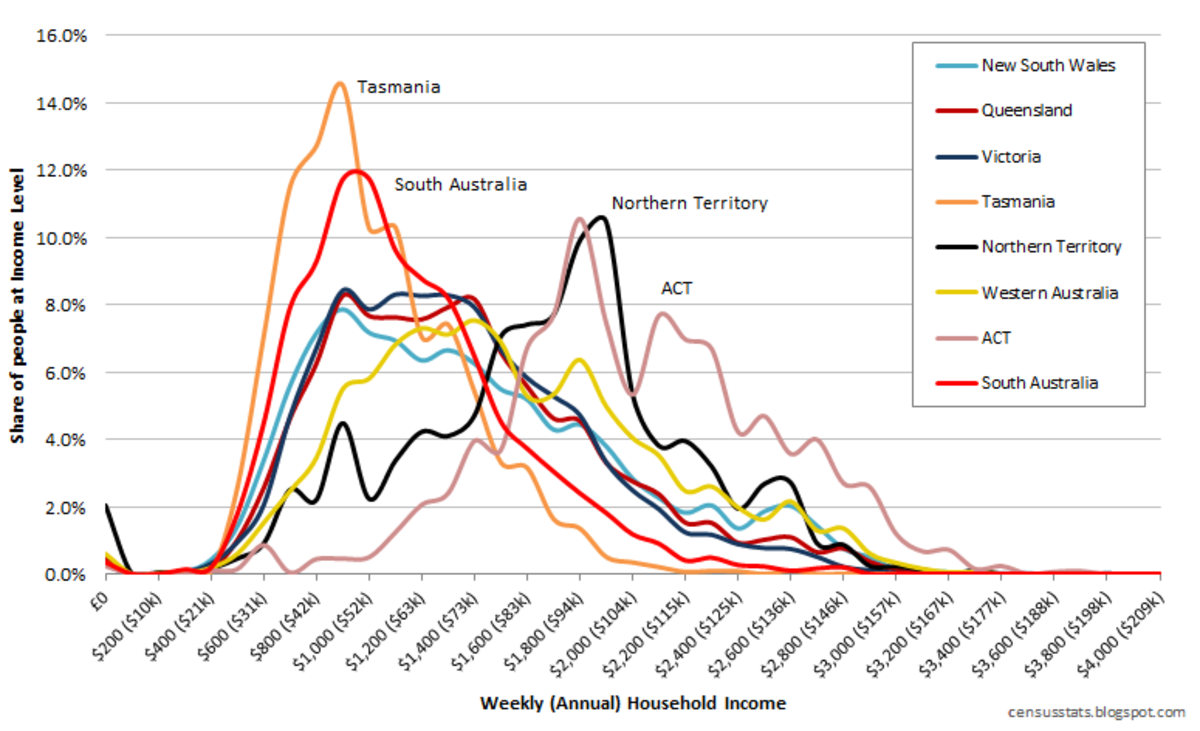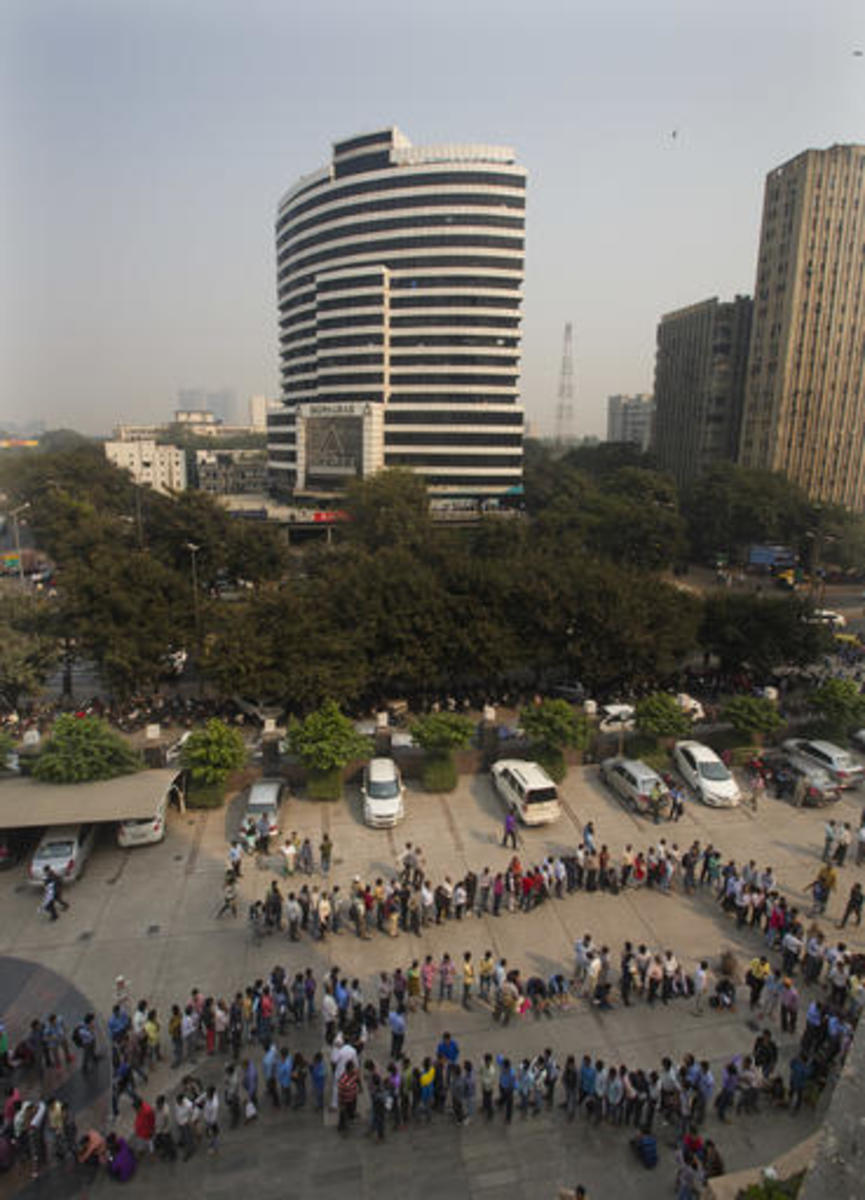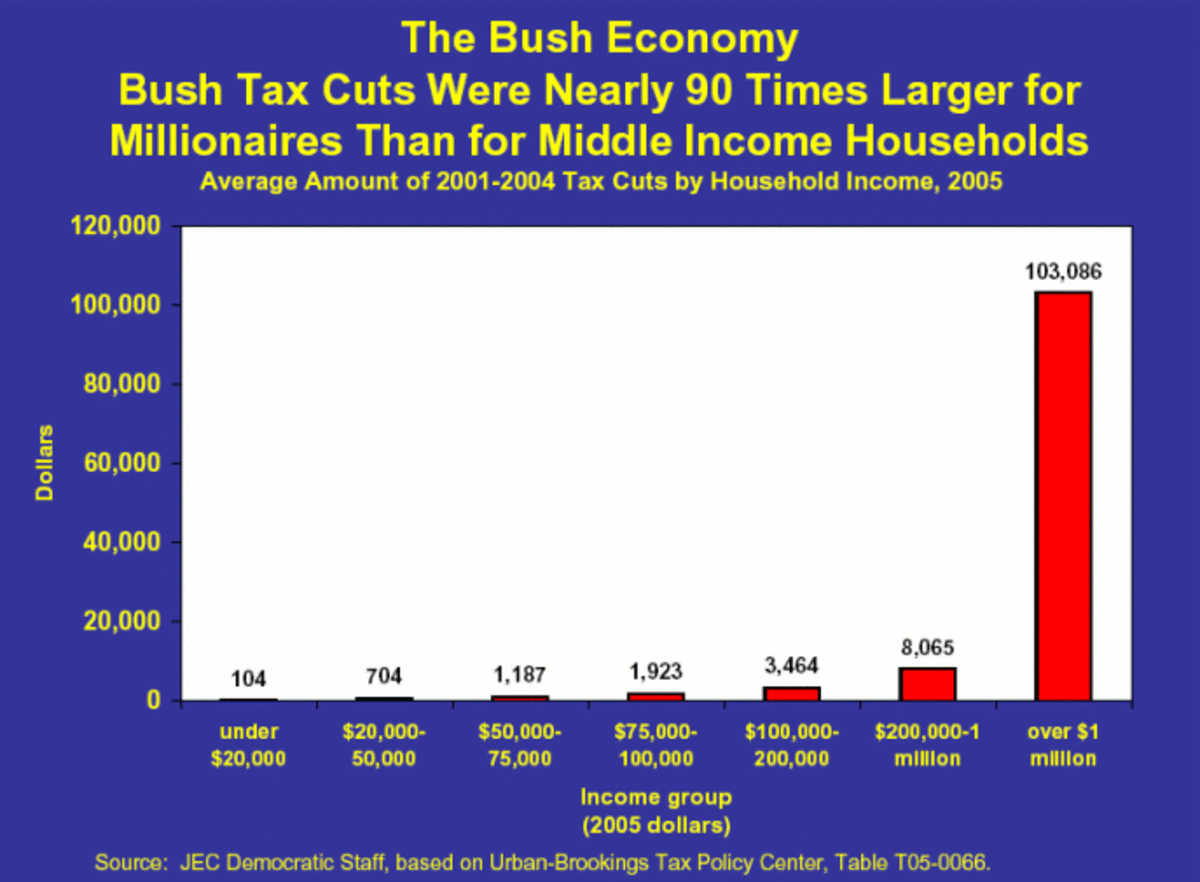Why Is Income Inequality So High In the United States?: (An Essay)

Hi ChristinS! How's it going?
Thank you for the question: Why is income inequality so high in the US? And how do we fix it?
1. The first thing to say about all of this, is that the reason income inequality is so high in the United States of America is because we are a culture in which the scales are tipped more heavily in favor of economic freedom as opposed to economic justice. In other advanced capitalist countries like ours, the balance is different, it is in fact tipped more toward justice over freedom.
a. Of course, I'm talking about Western Europe. One thing we can say is that a key difference between American capitalism and European capitalism is that the latter emerges from the old feudalism. Say what you want about feudalism, but at least within it the lord and the peasant were bound together by reciprocal duties and obligations. The lord and the peasant had duties to one another. American capitalism has no such roots.
2. In a culture such as ours, in which the scales are tipped in favor of economic freedom as opposed to economic justice, the ones who are bound to benefit the most are the ones with the vast majority of wealth and income share.
a. The people we are talking about over the past 30-40 years are the top one-tenth of the top one percent (1).
3. The reason for the cultural disposition of the United States regarding economic freedom and the people who have the most of it, is the fact that the corporate community, in the United States is more powerful than it is in other advanced capitalist societies similar to ours. The reason for this is something sociologist call the Four Networks Theory of Power. It just so happens that business has never faced competition from any other sector for pride of place in the American power structure. There is no one big church as there had been in many European countries. There is no big government, as it took to survive as a nation-state in Europe. And there was no big military until after 1940, which isn't very long ago, which could threaten to take over the government (2).
4. We must also note that there is severe income inequality between the white collar professional class (doctors, lawyers, journalists, accountants, college professors, etc.) and ordinary, non-supervisory manual workers. The reason for this is the fact that the latter are subjected to rules of supply and demand of labor supply; they face circumstances of competing with an abundance of manual laborers, thus their incomes remain flat to trending downward decade after decade.
This is emphatically not the case with the white collar professional class. The federal government protects them from supply and demand. They government has barriers to foreign workers in those fields, who would do those white collar jobs for less money. For example, if we in the United States were to pay doctors what they are paid in Western Europe---never mind a developing country---this would amount to a savings of eighty billion dollar a year (3).
Dean Baker, an economist with the Center for Economic and Policy Research, wrote this: "In 1997 Congress tightened the licensing rules for foreign doctors entering the country because of concerns by the American Medical Association and other doctors' organizations that the inflow of foreign doctors was driving down their salaries. As a result, the number of foreign medical residents allowed to enter the country each year was cut in half" (4).
What is the reason for this disparity of treatment between the white collar professional class and manual, non-supervisory workers by the federal government?
Again, Dean Baker wrote: "While doctors, lawyers, and accountants don't pull down the same money as corporate CEOs or the Bill Gates types, their success is hugely important in sustaining the conservative nanny state. If the only people doing well in the current economy were a tiny strata super-rich corporate heads and high-tech entrepreneurs, there would be little political support for sustaining the system. Since the list of winners also includes the most educated segment of society, it creates a much more sustainable system. In addition to being a much broader segment of the population (5-10 percent as opposed to 0.5 percent), this group of highly educated workers includes the people who write the news stories and editorial columns, teach college classes, and shape much of what passes for political debate in the country. The fact that these people benefit from the conservative nanny state vastly strengthens its hold" (5).
5. It was not always the case that the income disparity was so severe in the United States. American capitalism had experienced a sweet spot in the period of the mid-1940s to about the mid-1970s. The situation was like this: At the end of WWII in 1945, America stood alone as the only capitalist power that remained intact.
a. Europe and Japan were smashed and needed to rebuild by buying American stuff. What's more, they had to borrow American money to buy the American stuff with (Number One Creditor Country status). America had no competitors.
b. Immigration restrictions from 1920s-era legislation
c. These things taken together created a situation of a scarcity of labor in the United States. There was more work to do than there were hands to do it; and so employers needed to pay their hands well to do it.
d. In this environment, unions could thrive and keep employers honest. Wages for workers rose right along with productivity, also keeping pace with inflation. (6).

6. The situation started to change in the 1970s because:
a. In the 1960s Congress passed immigration reform, the result of this was to overturn immigration-restrictive 1920s legislation (7).
b. Women were starting to go into the workforce, in some numbers.
c. Because of changing technologies of production and transportation, manufacturing began to be relocated out of the urban industrial districts to the American South; as a result of this, jobs became scarce in the inner cities where African-Americans lived (8).
d. Europe and Japan recovered in the 1970s, subjecting the United States economy to competition for the first time in thirty years.
e. All of these things together created a surplus of labor. There were now too many hands looking for too little work to be done.
f. Employers simply took advantage of this state of affairs.
g. All of this, in turn, put tremdous pressure on unions to capitulate and give way, to compromise more and more to the advantage of the employers.
During the late-1970s and early-1980s at least one-in-twenty workers who voted for a union to be set up in their workplace, was illegally fired. Some estimates put the number at one-in-eight. This collapse in unionization has no counterpart anywhere in the industrialized world (9).
7. And so, starting at around the 1970s, the rate of productivity continued to rise and inflation continued to rise, and worker pay remained flate, so that today, the real wage of workers remains where it was around 1978-1982, something like that.
8. So far, given what we've pointed out, ruthless logic would seem to dictate that the way to fix the income inequality problem in the United States is to, somehow, find a way to restore the previously beneficial situation of scarcity of labor.
However, the very idea---quite aside from its physical impossibility---is distasteful, to say the least, from the standpoint of human rights.
9. Inflation is a force that deserves separate consideration for its ravenous, sudden-strike savage bestiality, and arbitrary wealth-depleting and neighborhood gentrifying aftermath wrought upon the middle and working classes.
a. For example, in 1986 the Mitsui Corporation bought the Exxon building in Manhattan for $610 million dollars. This was $260 million above the asking price. It was widely reported that Mitsui did this because the company's president wanted to get into the Guinness Book of World Records (10).
- What comes next from something like this?
- Well, what comes next is the realization that a new "standard" has been set, the "bar' has been "raised," as it were. Owners and managers of commercial and residential property will surely take that opportunity to raise their prices; owners of apartment buildings might take the opportunity of this increase in local real estate "values" to convert their buildings into a high-priced condominiums, and find ways to force out the hold outs, people with rent control agreements, and so forth.
- Suddenly middle and low-income people are priced out of their old neighborhoods due to the pressure of gentrification.
- People who sell things like cars, appliances, and other things might decide that such a "prosperous" and "growing" neighborhood should pay higher, that is to say, prosperous and growing prices for their, suddenly, enhanced-quality goods.
- Other businesses that cater to the public will surely not want to be caught without their hands out to catch the manna falling from the sky.
- Suddenly, one day, a paramedic, say, a married father of two with one on the way, comes home exhausted from working double shifts because his paycheck doesn't go as far as it used to...

10. Questions arise from a situation like this.
- Is this deal a triumph of the "market," or failure of the "market"?
- If this is a triumph of the market, does that mean that no action should be taken, nevertheless, by restraining and correcting forces?
- Should potentially millions of people---who will be affected and yet had nothing to do with the deal---be allowed to suffer the consequences of inflationary pressure on their paychecks, their income and wealth, ability to live in their homes, and even put money away in the bank for their futures, because some guy from a corporation wanted to get into the Guinness Book of World Records for his, or his company's, purchase of commercial property?
- Where should the rights and freedoms of the owners of capital end and those of ordinary, working taxpayers begin?
- If this deal represents a failure of the market, then what should be the response from the public sector, that is to say, the government, given the very well known history of government intervention in market failures in the United States (bailouts of financial institutions, temporary government takeovers, government-assisted buyouts, and so forth)?
- If this is a failure of the market, and government intervention is indeed called for, what should it look like and on whose behalf should it occur?
11. It is well known that when rich people find themselves with more money than they can reinvest profitably, they find other things to invest in. They put money into them not by a measure of what these assets are worth, but depending on how much money they want to put away, perhaps out of sight from the curious eyes of federal tax authorities. They might invest in art, real estate, stamps; it can be absolutely anything at all (11).
12. Yet another reason for the severe income disparity in the United States is monopoly. The most recent figures I have at my fingertips are these: The largest 1,000 companies in the United States, account for over 60 percent of the gross national product, leaving the balance to about 11 million small businesses (12). US public policy has never been wild about enforcing antitrust legislation. The feeling was that this would compromise the efficiencies of large-scale production; and judges did not really want to break up well-established businesses (13).
13. Still another reason for the income disparity in the United States of America has to do with the way CEOs are paid. It is well known that it is not correlated with performance. Nobel laureate economist Paul Krugman cites, in his book, an article from a 2001 issue of Fortune magazine called 'The Great CEO Pay Heist.'
Krugman wrote: "You might have expected it to go like this this: The stock isn't moving, so the CEO shouldn't be rewarded. But it was actually the opposite: The stock isn't moving, so we've got to find some other basis for rewarding the CEO." This, too, has no counterpart anywhere in the world (14).
14. The principal mechanism by which this is brought about is called the stock option. An option is the right to buy corporation stock at below market prices, so that when the value of the stock rises, your profit will be greater than those who paid full market prices will enjoy (15).
Conclusion
I'm going to leave it there. I doubt there are any easy answers; I know I certainly don't have any. I hope that I have given a fairly comprehensive, three-dimensional view of the problem. I do believe that a cultural shift has to occur in the United States, one that puts more weight on economic justice over economic freedom. I believe that when that most vital first step is taken, the details of policy correction will present themselves quite clearly.
Thank you so much for reading.
References and Notes
1. Phillips, Kevin. American Dynasty: Aristocracy, Fortune, And The Politics of Deceit In The House of Bush. Viking Penguin, 2004. 67
2. Domhoff, G. (2005, April 1). The Class-Domination Theory of Power. Retrieved January 13, 2015. paragraph 2.
3. Baker, D. (2006). Doctors and Dishwashers: How the Nanny State Creates Good Jobs for Those at the Top. Retrieved January 13, 2015. paragraphs 5 & 12
4. ibid, paragraph 11
5. ibid, paragraph 3
6. Krugman, Paul. The Conscience of a Liberal. W.W. Norton, 2007. 48-49
7. Harvey, David. The Enigma of Capitalism And The Crises of Capitalism. Oxford University Press, 2010. 14
8. Krugman, Paul. The Conscience of a Liberal. W.W. Norton, 2007. 88-89
9. ibid, 150
10. Chancellor, Edward. Devil Take the Hindmost: A History of Financial Speculation. Farrar, Straus, & Giroux, 1999. 263
11. For a whole litany of tax evasion schemes see: Johnston, David Cay. Perfectly Legal: The Covert Campaign To Rig Our Tax System To Benefit The Super Rich---And Cheat Everybody Else. Portfolio, 2003.
Korten, David C. When Corporations Rule the World. Kumarian Press & Berrett-Koehler Publishers, Inc., 1995. 94-95
David C. Korten wrote about Sweden in the early 1980s, which was undergoing a similar transformation as the United States, at about the same time.
"Maintaining a belief in Sweden meant increasing the share of the national product going to profits compared with wages so that Sweden's industrialists would find it worthwhile to invest at home. This was accepted as the price of maintaining full employment at a time when unemployment elsewhere in Europe was running at 8 to 9 percent or higher." page 94
This policy pushed profits for Swedish companies to previously unheard of levels. page 94
He went on: "With so much more money in their pockets than could be absorbed by productive investments, Swedish investors turned to speculation, driving up prices of real estate, art, stamps, and other speculative goods." page 95.
12. Korten, David C. When Corporations Rule the World. Kumarian Press & Berrett-Koehler Publishers, Inc., 1995. 217-218
13. Reich, Robert B. Supercapitalism: The Transformation of Business, Democracy, and Everyday Life. Alfred A. Knopf, 2007. 23
14. Krugman, Paul. The Conscience of a Liberal. W.W. Norton, 2007. 148
15. Johnston, David Cay. Free Lunch: How The Wealthiest Americans Enrich Themselves At Government Expense (And Stick You With The Bill). Portfolio, 2007. 261; Stiglitz, Joseph E. The Roaring Nineties: A New History of the World's Most Prosperous Decade. W.W. Norton, 2007. 115-116.
* Let me add this: Stock options are a boon in themselves. This is to say nothing of the innumerable stock option scandals there have been, since, say, 1980. For example, I don't like to speak ill of the dead but Steve Jobs, founder of Apple Computer was awarded millions of dollars in stock options at a board of directors meeting that never took place. Instead of fixing the mistake, he arranged to have the options converted into restrictive stock, worth hundreds of millions of dollars. The government brought civil charges against Apple's general counsel and its chief financial officer. The latter admitted to wrongdoing, gave up $3.5 million and said that he had warned Jobs about the improper pay.
David C. Johnston wrote: "Still, by late Summer 2007 the government had taken no action against Jobs. The Apple board, which included Al Gore, portrayed Jobs as an unknowing victim of complicated rules even though they have been in effect since before Apple went public decades ago."
Source: Johnston, David Cay. Free Lunch: How The Wealthiest Americans Enrich Themselves At Government Expense (And Stick You With The Bill). Portfolio, 2007. 16
*Let me add one other item I did not touch on in the body of the essay. But another mechanism for excessive elite income is pay deferral schemes. It goes roughly like this:
1. Executive declines to take delivery of a big chunk of his pay, instead deferring payment until some future year.
2. No taxes are taken out, because, technically, the executive has not been paid yet.
3. The executive gets to invest the full amount that is deferred.
4. The company invests the deferred amount. The money could be put back into the company; most often its put into a separate account and cannot be used to finance the company's operations.
5. Money set aside in such separate trusts are often invested in life insurance, mutual funds, or company stock.
6. The dividends and interest earned in the deferral account usually keep building inside the account, untaxed. A few executives do choose to have the dividends paid out, in which case they become immediately taxable.
7. When the executive cashes out (usually at retirement) the company withholds the income taxes and pays the executive the balance, usually in installments over a period of years.
8. Executives, senior sales agents, movie stars, and pro athletes get such deferral deals.
Source: Johnston, David Cay. Perfectly Legal: The Covert Campaign To Rig Our Tax System To Benefit The Super Rich---And Cheat Everybody Else. Portfolio, 2003. 47-49








